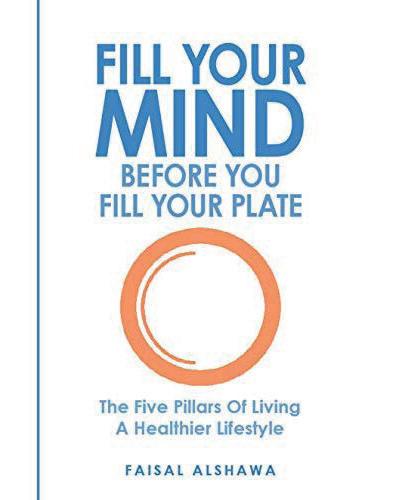
4 minute read
MINDFUL EATING & MINDSET
Mindful Eating and Mindset FILL YOUR MIND BEFORE YOU FILL YOUR PLATE
Ever found yourself working with a bag of crisps or chocolate on your desk, and when you next look down, they had suddenly disappeared? . Being so focused on whichever task was at hand, you’ve eaten whatever it was without even noticing or even tasting it! That’s mindLESS eating and I’d be lying if I said I’d never been in that situation, but it’s not a great feeling when you realise your food is gone and you’ve eaten without even thinking about it, let alone enjoying it.
Advertisement
Adopting mindful eating practices can help you to lead a more consistent, healthy lifestyle.
What is mindful eating? Mindful eating is about being truly aware of the foods you put into your body, and how you eat them and experience them. It’s about understanding the
benefits of eating healthy foods and really using all your senses to truly enjoy nourishing food. It’s also how to understand your hunger and fullness levels. Mindless Eating 1. Eating past full and ignoring your body’s signals 2. Eating when emotions tell us to eat (ie. sad, bored, lonely) 3. Eating alone, at random times and places 4. Eating foods that are emotionally comforting 5. Eating and multi-tasking 6. Considering a meal an end product Mindful Eating 1. Listening to your body and stopping when full 2. Eating when our bodies tell us to eat (ie. stomach growling, energy low) 3. Eating with others at set times and places 4. Eating foods that are nutritionally healthy 5. When eating, just eating 6. Considering where food comes from 6 Ways to Practice Mindful Eating
Here’s a guide of how to practice eating mindfully and the benefits you can expect.
Start by practicing one step for a few days, and then try the next one. Eventually you can combine all steps 2-5 during a whole meal and experience being fully mindful while you eat: 1. Grocery shopping. Believe it or not, mindful eating starts when you shop! It’s always best to shop when you are full (or somewhat full). The last thing you want to do is to food shop when you are hungry (or starving) because you will make unhealthy food decisions. Also, be aware of the aisles you enter. Focus on entering the aisles which display healthy options. 2. Come to the table with an appetite - but not when very hungry. If you skip meals, you may be so eager to get anything in your stomach that your first priority is filling the void instead of enjoying your food. Try to eat regularly through the day so you look forward to and enjoy your meal. 3. Eat slower. It takes our brain 20 minutes to realise we are full. If you eat slow, you will feel full quicker, which allows you to consume less calories in your meal. 4. Chew more. Ideally, it’s best to chew anywhere between 30-40 times before swallowing your food. Try to focus your attention on each bite and chew properly. Taste the food, experience the texture, notice how the food really feels. Your digestive system will thank you for this too! 5. Put your fork down between bites. This is an excellent habit to support the chewing. The act of setting your fork down forces you to focus on chewing your food rather than letting yourself mindlessly pick at your food, preparing for your next bite. It encourages you to slow down and attend more to the taste of your food. 6. Eat to satisfaction, not to stuffed! - This small step makes a HUGE difference. Try it for yourself! Eat to 80% fullness and avoid that uncomfortable feeling of having overeaten. 7. Eat with no distractions. Using our phones, watching TV or talking distracts us from our food. You may find yourself swallowing your food quicker too, so eat your food without any distractions so you can give your undivided attention to the way you eat and the experience. 8. Think before you eat. Before you reach for food, take a moment and really think about the food you are putting in your body. Why have I chosen this? Is it processed? How was it manufactured/grown? What are the ingredients? By being aware of what you put into your body, you make healthier food decisions. Mindful eating is healthy eating. By adopting mindful eating practices, you will be more aware of the food choices that enhance your health and well-being and better practiced at making these choices on a day by day, meal by meal basis. Mindful eating will also accelerate you towards your wellbeing, health and body goals, enabling you to live a healthier and happier lifestyle.
Faisal Alshawa is a qualified nutritionist and fitness mentor and founder of Believe Nutrition. Based in Kuwait, he works with professional athletes and busy working professionals offline and online to help them to get in shape, lose weight and create sustainable daily habits to optimise their health. He is the creator of ‘The Five Pillars of Living’ - a Healthier Lifestyle method that focuses on mindfulness and mindset and approaching health mindfully. believenutrition.net








